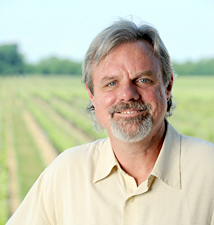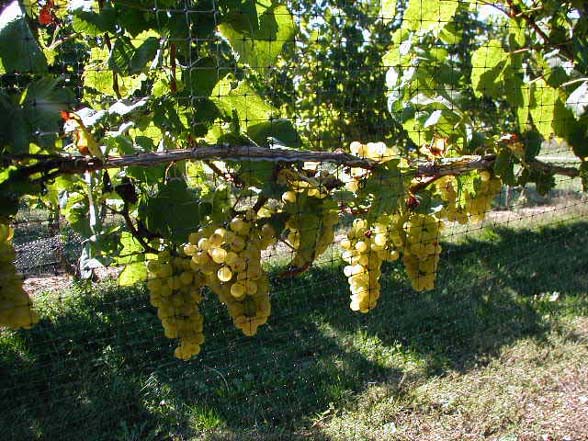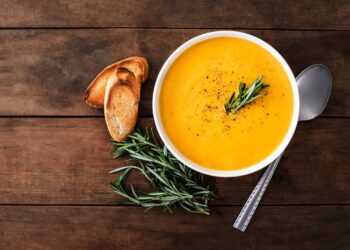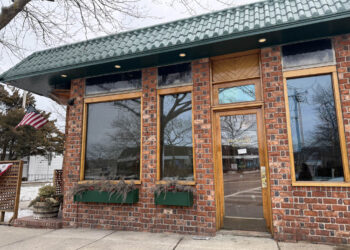“A meal without wine is like a day without sunshine,” said Anthelme Brillat-Savarin in 1825. Many of us couldn’t agree more.
The wine industry across the East End is flourishing on the North Fork and in the Hamptons, and new things are happening here. A group of local wine producers is aiming to create even better wines by growing their grapes using sustainable, environmentally friendly cultural practices.
 |
|
LISW spokesperson Richard Olsen-Harbich, Winemaker at Bedell Cellars. (Courtesy Photo) |
On April 12, 2012—Earth Day–several local vineyards joined together to launch Long Island Sustainable Winegrowing, a non-profit organization that offers educational programs and special certification for Long Island vineyards. LISW has worked closely with the Cornell University Cooperative Extension to develop their growing program, which is based on Cornell’s Vine Balance certification program. According to LISW spokesperson Richard Olsen-Harbich, Winemaker at Bedell Cellars in Cutchogue, Alice Wise and Libby Tarleton of Cornell helped LISW to adapt the Vine Balance standards to fit the particular characteristics of our maritime climate on Long Island.
Founding members Bedell Cellars, Channing Daughters Winery, Martha Clara Vineyards and Shinn Estate Vineyards have already been joined by 10 other vineyards, including Lieb Cellars, Harbes Family Vineyard, One Woman Wines & Vineyards, Peconic Bay Winery, and Wolffer Estate Vineyard, and anticipate more members in 2013. Many more vineyards here are using at least some sustainable and organic practices but have not yet made a decision to seek certification.
What Is Sustainable Wine Growing?
The goal of sustainability is to reduce the use of chemicals and fertilizers to grow wine grapes, which in turn helps to protect water quality by eliminating runoff and leaching of agricultural chemicals into groundwater and, eventually, our bays and estuaries. LISW members also strive to promote healthier soil and grapevines, and protect the health of the people who work in the vineyards. The hope is that sustainable practices will result in top-quality wines as well as environmental benefits—a win/win for the industry and for consumers, too.
Sustainable wine combines organic growing methods with social awareness. It is a holistic approach that promotes diversity and encourages interconnectedness. To the sustainable grower the vineyard is an ecosystem that is part of the larger ecosystem around it. What happens in the vineyard affects the surrounding landscape with its vegetation, wildlife and waterways. Sustainable growers want to be good stewards of the land they farm, not just producers of their crop. In many ways sustainable techniques are a return to traditional conservation methods.
LISW’s sustainable practices have three components: environmental stewardship, social equity and economic viability. Their website states that “It is extremely important that our members produce grapes and wines that are of high quality, sold at a competitive price and are produced using techniques and practices that are both good for the environment and the society at large.”
The American Agronomy Society in 1989 defined sustainable farming this way: “A sustainable agriculture is one that, over the long term, enhances environmental quality and the resource base on which agriculture depends; provides for basic human food and fiber needs; is economically viable; and enhances the quality of life for farmers and society as a whole.”
 |
|
The first certified sustainably produced wines are expected to come from grapes grown in 2012. (Photo: Nicole B. Brewer) |
How Does Sustainable Work?
The members of LISW pledge to adopt the following cultural practices, among others:
How the Process Works
When a grower joins LISW, their cultural practices are carefully evaluated, often in consultation with a Cornell Cooperative Extension Agent. Together they create an action plan for improving the practices. The vineyard must show progress in introducing sustainable growing techniques, and also in community outreach and support. Members are encouraged to hire local workers, for instance.
The first certified sustainably produced wines are expected to come from grapes grown in 2012—an important step toward a sustainably managed wine industry on Long Island. LISW is still in the process of working out the certification process, but they expect members to become certified for 2012 sometime in early 2013
For more information on the Long Island Sustainable Wines program visit www.lisustainablewine.org and www.vinebalance.com.












